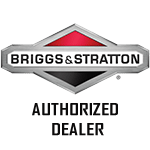732-297-9515 | 3860 NJ-27 Princeton, NJ 08540
AUTONET TV
Archive for July 2023The Right Fluids for Your VehiclePosted July 30, 2023 7:57 AMThe current vehicles in the market have over a century of engineering behind them. They have evolved into complex and powerful machines. Developments in their engines, however, have coincided with advances in many other vehicle components, including the fluids. KPS Princeton Garage
No Strain, No Gain (The Basics of Oil Filters)Posted July 23, 2023 10:13 AMEver wonder what one of the best things is to ever happen to your vehicle's engine? It's the little thing that usually looks like a can, the oil filter. Just like your kitchen sink strainer filters out errant particles of food from clogging your drain, the oil filter cleans out small particles that could cause your engine harm. Your engine operates in a dirty, hot environment and gathers a lot of tiny contaminants like dirt, dust, little metal shards and unlucky bugs that get sucked in. Get those things circulating in your engine and those little particles can cause friction, which starts wearing out those finely machined metal parts. You know how important it is to change your oil regularly. It's vital that you change your oil filter at the same time to keep the oil as close to brand new as possible. Most oil filters look like a metal can with some holes in the bottom. Inside there are carefully chosen materials that can screen out the contaminants while at the same time allow the lubricating oil to pass through. Early oil filters had steel wool, metal mesh or actual screens. Then they tried fabric filters using material such as linen and cotton. Finally, a less expensive disposable filter using paper and cellulose did the trick. Cellulose or other synthetic media are used in most oil filters today. Cellulose is inexpensive and effective. Fibers filter out particulates and let the oil flow. The other synthetic media have the ability to screen out even tinier particles while not significantly restricting the oil from getting through. Engineers continue to work on even more advanced filter material. Choosing the right oil filter is something our pros at KPS Princeton Garage can help you with because there are a lot of them out there. Factoring into that decision are your driving habits, how far you drive and the temperatures to which your engine will be subjected. While some filters will cost more than others, they may be worth it to extend the life of your engine. But most important is remembering to come have your oil changed at KPS Princeton Garage regularly at the intervals recommended by the vehicle's manufacturer. Just like you wouldn't want to have a plumber come over to fix a clogged kitchen drain, you certainly wouldn't want to have to pay for major engine repairs if they could be prevented by regular oil and filter changes.
Oil's Well That Ends Well (Oil Change Grades and Weight)Posted July 16, 2023 7:14 AMChanging your oil regularly is one of the most important things you can do to keep your vehicle running well. And knowing the right type of oil to use is also very important. Engine oil is classified by weight, but it doesn't refer to how much the oil would weigh if you put it on a scale. It refers to viscosity, or how easily the oil flows through the engine. Most engines operate normally at around 210°F/99°C. The viscosity, or weight, is assigned a number by how well it flows at that temperature. The lower the number, the more freely it flows. Most vehicle engines use what's called a multigrade oil which behaves differently in different temperatures. Multigrade oils have a "W" in their viscosity number that you may have seen on a bottle of oil, something like 5W30. The W stands for winter and shows how freely it flows in colder temperatures. That means a 5W30 oil will behave like a 5 weight oil in lower temperatures (less viscous or thinner) and a 30 weight oil in warmer temperatures (more viscous or thicker). That's important on a cold day because the oil needs to behave like a thinner oil when you start your engine since it need to lubricate engine components immediately to protect the metal components. Then as the engine warms up, it behaves like a thicker oil to prevent friction among those parts. Pretty neat trick, right? The type of oil you use can differ depending on what type of climate you operate your vehicle in and how your vehicle is used (carrying big loads, towing, etc.). Your owner's manual contains several different recommendations based on these factors. Your service advisor can recommend the right oil for your needs. Like Shakespeare said, "Oil's well that ends well." KPS Princeton Garage Fuel System Cleaning the Professional Way at KPS Princeton GaragePosted July 9, 2023 11:27 AMYour fuel system needs to be clean to do its job properly. When it gets dirty, the results are lower engine performance, reduced fuel economy and impaired safety. It can even lead to costly repair bills for Princeton drivers. So keep your fuel system clean as part of your routine preventive maintenance. Your owner's manual and KPS Princeton Garage service advisor can help you with other car care advice that can help improve the safety and performance of your vehicle. KPS Princeton Garage in Princeton can also help you set up a schedule to perform that maintenance and help you customize that schedule so it accounts for the climate and road conditions in your area. KPS Princeton Garage Not Too Hot and Not Too Cold (Temperature Gauge)Posted July 2, 2023 10:00 AMYou know your body temperature is supposed to be 98.6 degrees F, 37 degrees C. Your vehicle has a normal temperature, too, and if you pay attention to it, that can save you some big headaches down the road. Many vehicles have a temperature gauge on the dash that takes the temperature of the engine's coolant. Some have a thermometer symbol, some read C-H (cold to hot). Many will have a red zone that shows when water temperature is getting into the danger zone. Others are digital and have a red warning light that signals overheating. And some vehicles have a light that goes on when the engine temperature is out of the normal range. If your vehicle has a gauge, pay attention to it. If you need help locating it, ask one of our KPS Princeton Garage experts to give you a quick explanation. Chances are when the vehicle has been running for 15 minutes or more, the temperature gauge will settle into its own "normal" zone, often just below the midway point. If you have a digital readout, remember what that "normal" temperature is. Here's why. At any point when you're driving, the temperature gauge is the quickest way to get a sense that the engine is running the way it should, a quick health checkup, as it were. Say you're on a 3-hour trip, glance at that gauge every hour or so. It should always be in the same spot. If it starts to move one way or the other, you may be able to catch a problem before it gets serious. Pay special attention to it moving into the hot zone. The needle on the gauge is the easiest and least distracting way to see an engine heating up, but on a digital gauge, start paying attention if the temperature reaches 240ºF/115ºC or more. Remember, though, that just because the gauge reads "hot" doesn't mean your engine is on the verge of burning up. It could be a bad sensor and the engine will be at a normal temperature. But it also could be a failing water pump, coolant leak or thermostat. By pulling off the road and observing your engine, it will give you a pretty good idea if it's running hot or not. If the gauge is too "cold," it could be a broken gauge or thermostat sticking open. Usually being in the cold range isn't as worrisome, but you should have it checked out since other systems may be affected. Heat is one of a vehicle's worst enemies, especially when it comes from within. Know your vehicle's normal temperature and keep an eye on it.
| ||
SearchArchiveSeptember 2020 (18)October 2020 (4) November 2020 (5) December 2020 (4) January 2021 (6) February 2021 (4) March 2021 (4) April 2021 (4) May 2021 (5) June 2021 (4) July 2021 (4) August 2021 (5) September 2021 (4) October 2021 (5) November 2021 (4) December 2021 (4) January 2022 (6) February 2022 (4) March 2022 (4) April 2022 (4) May 2022 (5) June 2022 (4) July 2022 (5) August 2022 (4) September 2022 (4) October 2022 (5) November 2022 (4) December 2022 (4) January 2023 (5) February 2023 (4) March 2023 (4) April 2023 (5) May 2023 (4) June 2023 (4) July 2023 (5) August 2023 (4) September 2023 (4) October 2023 (5) November 2023 (4) December 2023 (5) January 2024 (5) February 2024 (4) March 2024 (5) April 2024 (3) | CategoriesDrive Train (4)Shocks & Struts (3)Alignment (6)Check Engine Light (2)Timing Belt (2)Diesel Maintenance (1)Fuel System (22)Older Vehicles (3)What Customers Should Know (25)Maintenance (26)Oil Change (3)Brakes (5)Alternator (3)Service Intervals (4)Air Conditioning (4)Parts (4)Serpentine Belt (3)Winter Prep (3)Tires and Wheels (15)Transmission (3)Cooling System (7)Engine Air Filter (1)Fluids (8)Steering (4)Monitoring System (3)Cabin Air Filter (4)Diagnostics (4)Automotive News (1)Windshield Wipers (3)Service Standards (2)Fuel Economy (2)Exhaust (2)Battery (6)Fuel Saving Tip: Slow Down (1)Auto Safety (3)Wheel Bearings (1)PCV Valve (1)Headlamps (2)Inspection (3)Keys to a long lasting vehicle (1)Tires (1)Winter Tires (1)Spark Plugs (2)Dashboard (1) | |
coupons
$10 OFF FULL SYNTHETIC OIL & FILTER CHANGE
view couponTestimonials
D Ward, 04/05/2024
Took my classic car to KPS, the best car repair experience! They kept me very well informed and did quality work! The car runs excellent ( pure American muscle)! Kudos to Mark and the crew!







